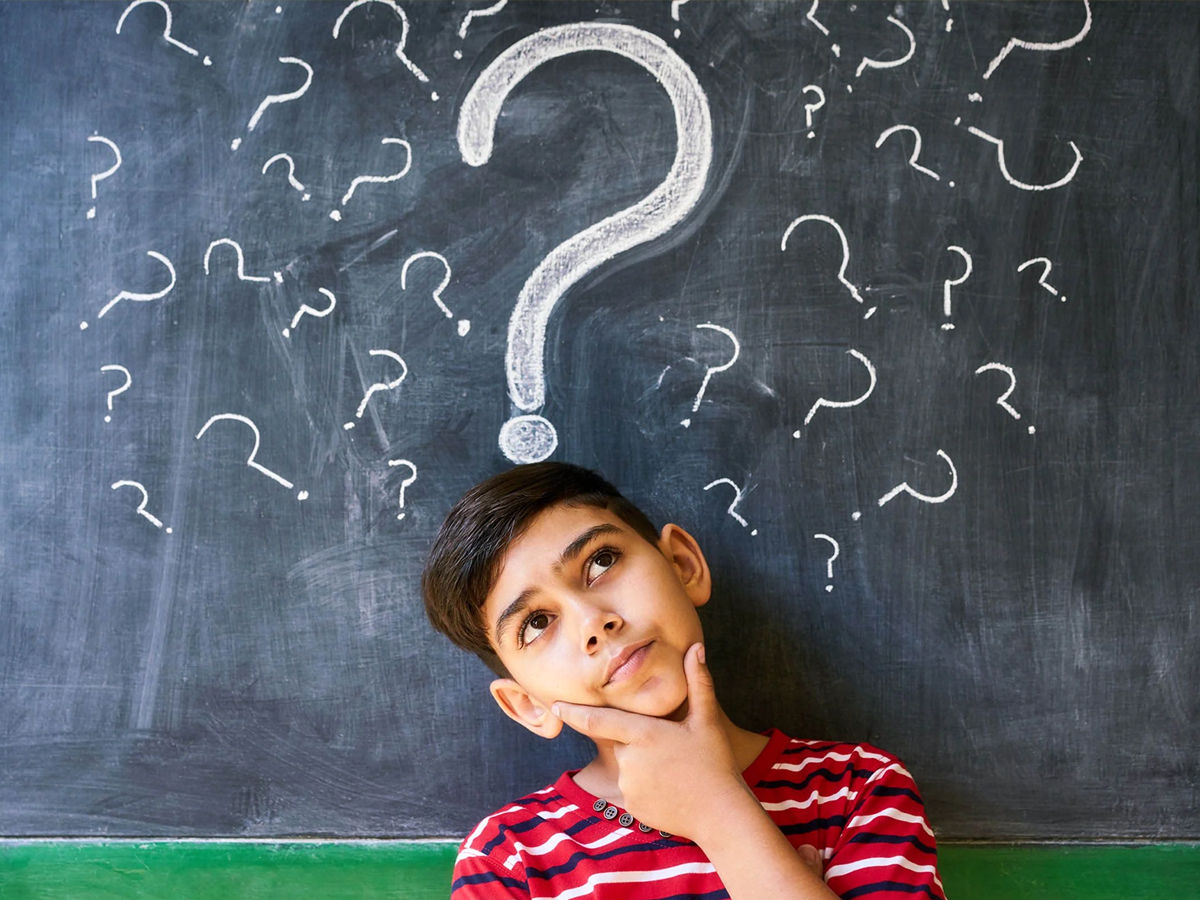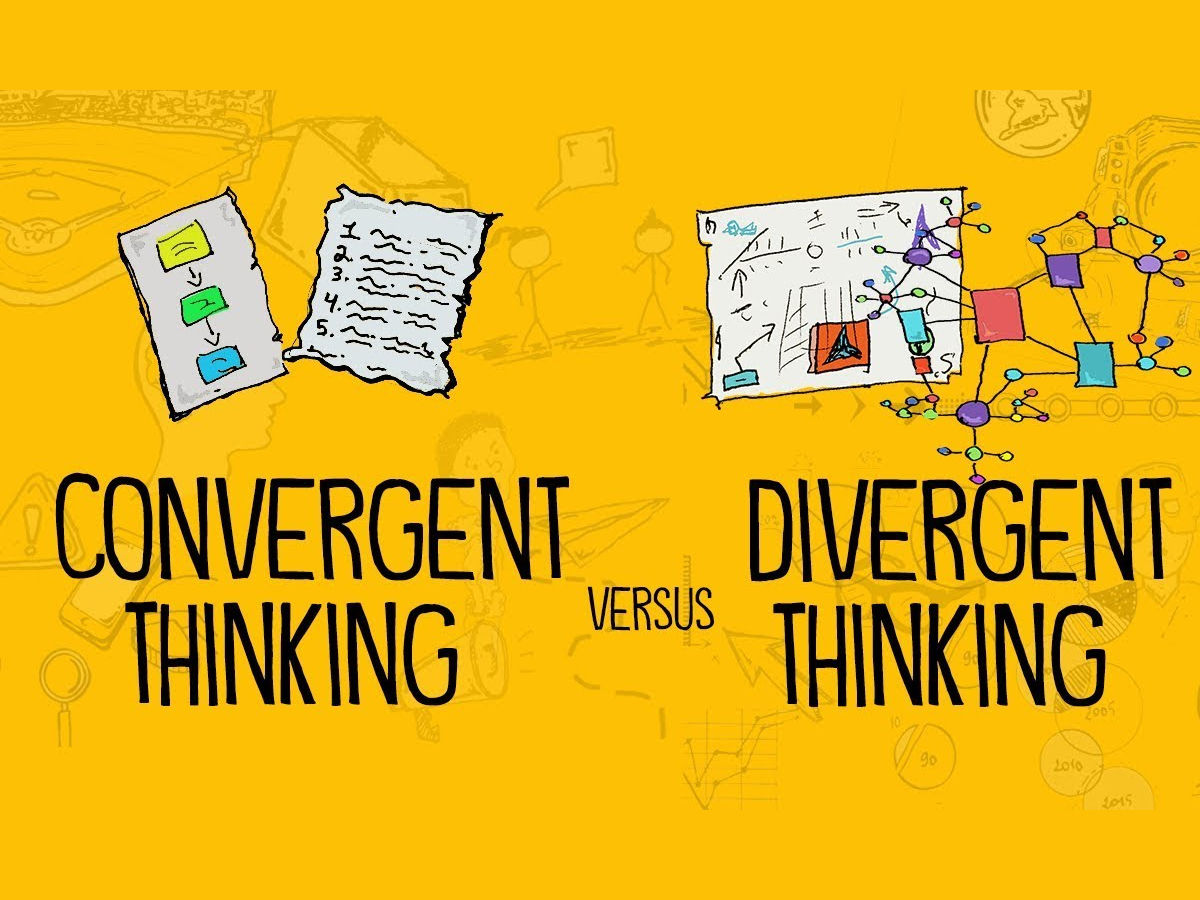What makes the Person more creative? How is it that Albert Einstein and Isaac Newton came up and answered the most imperative questions about physics? How is it that Nikola Tesla came up with a new electrical power plant?
They Diverged and then Converged their ideas. To better understand these terms. Let’s simplify and explain them.
Divergent Thinking

Divergent thinking begins from a common point and moves outward to include a range of factors or viewpoints in diverging directions. When solving an abstract or new problem, it is the sort of thinking that we do, for a problem that has not been solved before and may have several potential answers, solutions, or results. There are four dimensions of this ability; originality, flexibility, fluency, and elaboration.
Originality-Originality is the measure of your answers’ lack of frequency. It is the capacity to look beyond apparent solutions and produce new ideas and answers. “It is how unique your solutions are, and” out-of-this-world. These answers will be unexpected and unfamiliar and may often lead to solutions that are breakthrough. However, if the ideas do not apply to the actual mission or issue on-hand, be mindful that the capacity is negatively affected.
Flexibility-Flexibility is the capacity to produce a range of ideas and answers across various categories and to look at issues from different points of view. It is also the capacity to think about different principles simultaneously as well as move between them. Non-linear thinkers are extremely versatile thinkers and can keep two contrasting points of view in their minds at the same time. It is the skill associated with the most successful organizational leaders.
Fluency-Fluency is both the ability to create a large number of suggestions or answers and the ability to generate alternatives purposefully, even though you are content with your current ideas. A person who has a high degree of fluency in creative thinking can quickly think of several different ideas. Although Flexibility is about different categories of ideas, in a particular category, Fluency is about generating ideas.
Elaboration-Elaboration is the capacity to build on a concept and embellish it with information. It is also the capacity to generate a complicated strategy. Unlike Fluency, which is the capacity to produce ideas, the information within each idea is referred to by Elaboration. Elaborate leaders tend to be eloquent, articulate, and compelling. It’s the ability to make it easy for your peers and colleagues, especially because they can notice the amount of detail and clarity you are willing to provide.
To accurately assess one ‘s abilities in Divergent Thinking, a collection of open-ended stimuli, scenarios, and exercises must be given. The failure to rate them effectively is one key explanation of why divergent thought tests are not well-received.
Convergent Thinking

If there is a right answer to a problem, Convergent Thinking is used. It is the ability to bring together a variety of different pieces or views of a subject in some ordered, rational way. Your Convergent Thinking abilities are abilities related to your subject-knowledge, logic, intelligence, and your ability to focus when needed.
Subject knowledge and expertise-Subject-knowledge and expertise are defined by experience or education as information gained. It means you are an elderly leader by possessing an ability level that goes beyond just understanding things. In a given eld, both talented and experienced people are subject-matter-expert. To develop the next method or product, all use the combination of their expertise gained through experience and education with their creative abilities.
Logic and Reasoning-Logic and Reasoning are cognitive methods of using a rational, systematic sequence of steps to draw a conclusion based on sound empirical or mathematical procedures. It is the capacity based on a new collection of knowledge to make sense of things, to create and validate evidence, to alter or explain practices and beliefs. To prove their points and encourage others to take part in their new product or process, all innovative people need strong and sound logic.
Focus and Concentration—Focus is the action or power of purely putting one’s effort into completing a task. It is a mental ability to block all external noises and distractions when needed
Intelligence-The capacity to understand and interpret is intelligence. Intelligence includes the ability to reason, prepare, solve problems, think abstractly, learn rapidly, understand complicated concepts, and learn from experience, among other things. It is not merely a small academic ability, book-learning, or smart test-taking. Instead, it represents a wider and deeper capacity to consider our world to make sense of things or find things out.
We tend to diverge, look at various and potential angles when faced with a new problem, then converge, and choose the best possible solutions for the given problem. A recent study has shown that it is important to have expertise and intellect to be innovative. Having knowledge and intellect, however, does not guarantee that one is also imaginative. There are both divergent and convergent thinking abilities for any creative problem-solver.





























